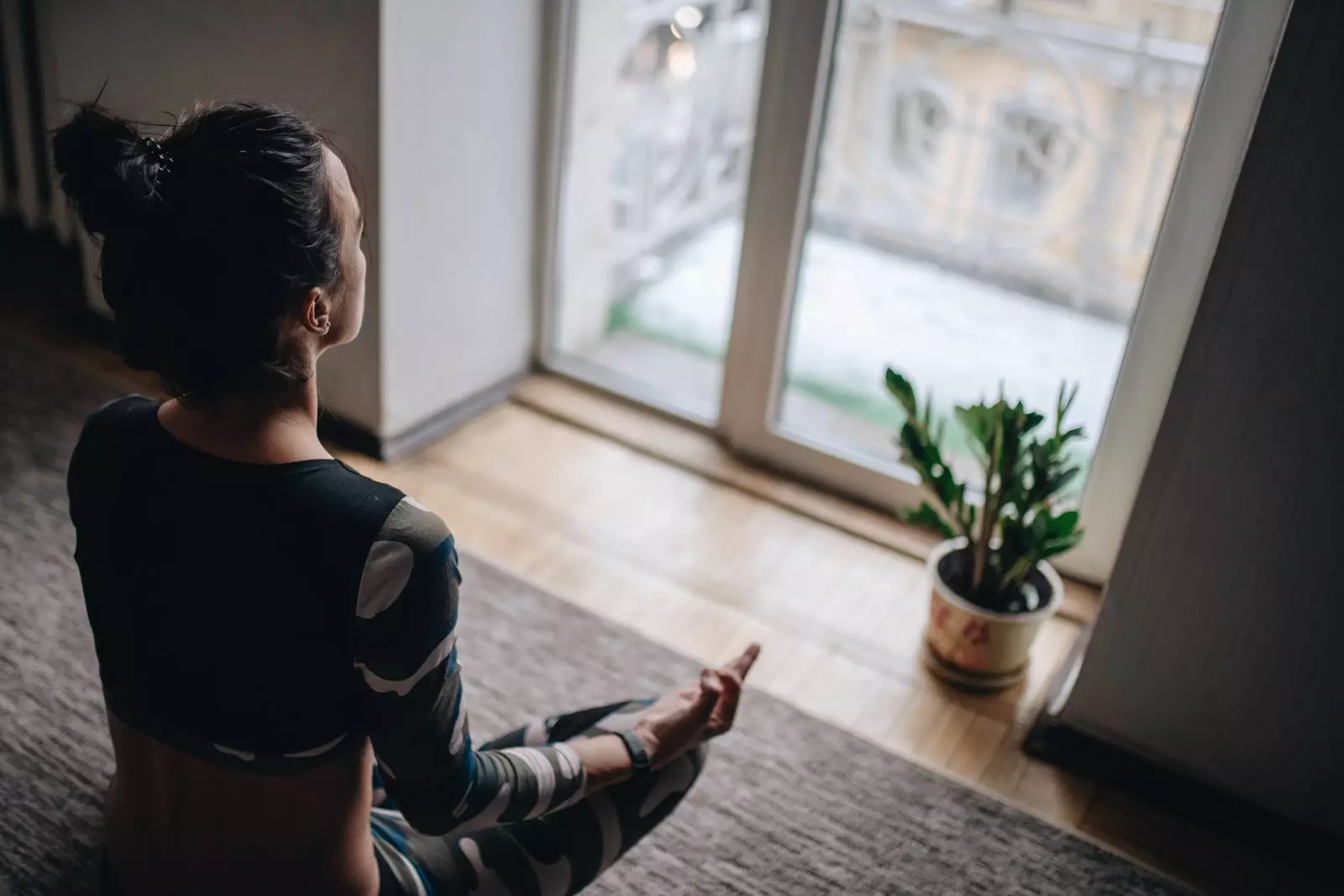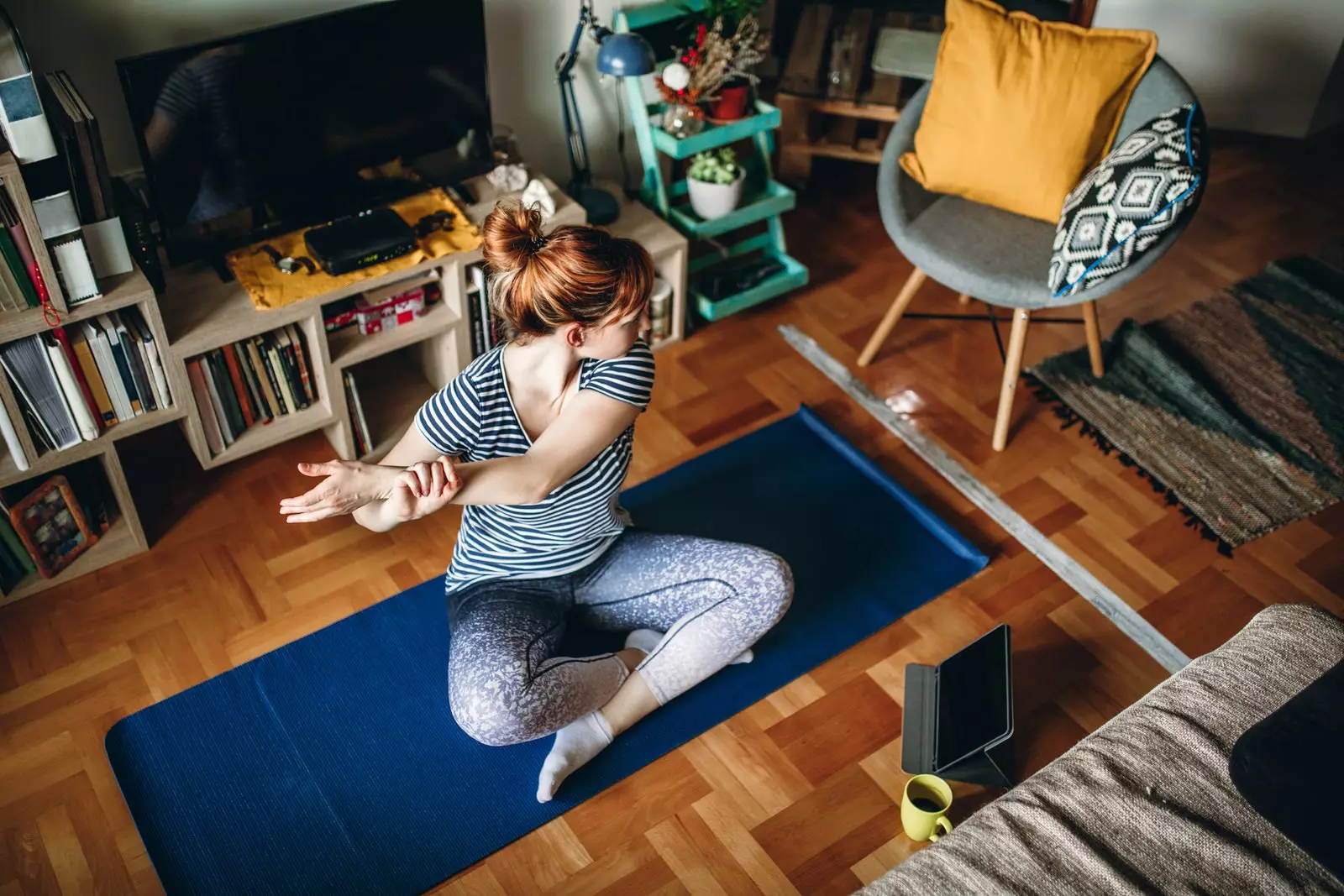
Take a breather: practice mindfulness
The lockdown or #I stay at home can present itself as a catastrophe or as an opportunity to discover new sensations or rediscover the old ones , to appreciate the simple things, pamper ourselves a lot, slow down and increase attention. We talked about the method that will help us cope with this moment as lockdown medicine : the mindfulness.
STRESS IN TIMES OF THE CORONAVIRUS
At dawn, take some time before getting out of bed to feel the softness and freshness of the sheets; see the water boil during breakfast and stop for enjoy the aroma of freshly brewed coffee . we look out to the window to see that the world continues to turn, albeit more slowly, and that the sun's rays filter through the glass and caress our skin. We savor each tannin of that glass of wine that we like so much, each note of that special melody or each cloud that passes through the sky. It is time to connect with the present, with the “ here and now”.
However, where we are “here and now” is at home. Whether it's because we've succumbed to COVID-19, are telecommuting or out of work, caring for someone or being cared for, in company or alone . At a time like this, negative aspects such as boredom, boredom, laziness, sadness, worry, uncertainty, problems of coexistence or loneliness, anxiety, fear and even pain lurk more than ever. And how to deal with them depends, in part, on us. Our secret: the mindfulness.
A PHILOSOPHY OF LIFE
But, what is mindfulness ? "Is a philosophy of life based on mindfulness and meditation to be more aware of what happens in our body and mind and the response that we give to each situation”, explains Veronica Casaos , therapist of this methodology that defends mindfulness and self-exploration as dogma. "The mindfulness It helps us to deal with day-to-day decision-making in a more stable and secure way”.
The term was introduced in 1990 by Jon Kabat-Zinn , doctor and molecular biologist creator of the technique of Stress Reduction Based on Mindfulness (REBAP) . He understands that mindfulness consists of “ paying attention intentionally to the present moment and non-judgmentally ”. His research work since 1979 has focused on the clinical applications of mindfulness training for people with chronic pain and stress-related problems or disorders.
In the coronavirus crisis, mindfulness can function as a Escape route granting ourselves the necessary space so that, in the face of a negative stimulus, we can decide how to respond instead of reacting impulsively. In this way, we learn to manage mental states such as anxiety or fear to deal with them in a balanced way . “Mindfulness helps you accept what is there without giving up,” explains Verónica Casaos. We speak of an anesthesia in the face of these times . It sounds simple, but how do we achieve it?
GUIDE TO PRACTICE MINDFULNESS AT HOME
“Through the meditation, conscious movements, breathing exercises Y body scan we managed to increase calm, well-being and continue on our way to cope with anxiety and other negative mental states”. A path that, according to Verónica Casaos, “is slow and lasts a lifetime”. Why not start today from home?
Feel how the hot water from the shower flowed e and caresses every part of our body; concentrate on the foam touch , the smell of soap and in our meticulous technique to wash our hands every so often. The first objective is to focus on a single daily task, however simple it may seem, leaving aside the multitasking mode that today's society demands of us.
we will search pleasant sensations through memories , of scent of that perfume that we like so much, the sun itch in the morning , this healing song that always makes us smile, the taste of an ounce of chocolate eaten very slowly or reading that novel that makes us travel very far without moving from here. In summary: “pamper ourselves a lot enjoying the little simple things” , mindfulness therapist word.
We continue. Lying in a comfortable and quiet place we began to take a tour of our body to “ hear what he has to tell us ”. “In a moment of crisis like this, it is normal to be afraid, that is what you feel, like anxiety in your chest or worry in your stomach,” explains Casaos. "We have to focus on that feeling , and not in catastrophic thoughts, to be more aware and learn to live with it, ”she concludes.
Open the window and close your eyes to pay attention to sounds trying not to enter judgments or find out where they come from. She reopens them to watch the passing clouds. It's time to slow down, stop and do breathing exercises. the rush is over.
Another aspect to take into account in this situation is be aware of what we eat and how we eat it . "Moments of anxiety lead us, in most cases, to eat quickly, compulsively and unhealthily," says the therapist. Also of our reactions when coexistence and isolation can become a threat. Take it easy.
Some examples of conscious and simple movements that we can perform at home go through extend the hugs to shoulder height and lower or raise them towards the sky . Always controlling the breath . The lotus position opening, making wide lateral circles with the arms, turning the trunk from one side to the other and bending down as if to pick up something and stretching to take it to the sky are also simple practices that help us focus our attention, like some balance exercises. You don't have to be an expert yogi to practice " full attention”.
HOW DOES ALL THIS AFFECT MY BRAIN?
The thickness of the cingulate cortex increases with benefits in attention, memory and learning . The gray matter in the amygdala decreases thus reducing fear, anxiety and stress. The left area of the hippocampus, responsible for cognitive abilities and emotion regulation, is increased, as is the temporoparietal junction, responsible for empathy and social relations.
There are those who can think of mindfulness as an opium or a placebo to cope with the misfortunes of modern life without solving them from the base. However, in these times, any help is little if we want to know each other a little more, slow down and anxiety and begin to value the simple things. In short, feel good.

You don't need a specific place. Simply listen to your body and mind.
